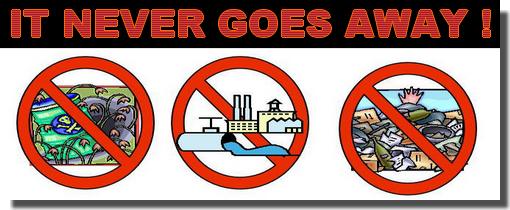Six Simple Swaps to Reduce Plastic Waste

 Add article to favourites
Add article to favourites According to National Geographic, only 9% of the plastic ever made has been recycled. The rest of it is either in landfill, has been incinerated or is litter.
According to National Geographic, only 9% of the plastic ever made has been recycled. The rest of it is either in landfill, has been incinerated or is litter.
Some reports suggest that 100million marine animals die each year from plastic waste. And it’s also harming the environment, wildlife and humans.
Plastic isn’t going away any time soon. And I’m not here to demonise it.
Let’s face it, you and I probably enjoy the convenience of buying things in lightweight packaging, plastic helps prolong the life of foods that might perish if they get wet. And without our computers and mobile phones, you and I wouldn’t be here, discussing a Zero Waste lifestyle.
But there are some excessive plastics we can do without.
Here are six simple swaps you can try today:
Water bottles
The UK uses 13 billion plastic bottles every year. Whether you grab a takeaway at lunchtime, can’t resist that ‘meal deal’ when you fill up your car with fuel or buy your kids a treat when out and about, there is a simple, and much cheaper option to buying bottled drinks.
Buying a refillable bottle will last for years, and, over time, will pay for itself over and over. The message is getting out there, but perhaps not quick enough, when you look at these statistics from 2018. Fortunately there are more and more refill stations available, which you’ll find here.

Shampoo
In the UK, we’re throwing away 520 million plastic shampoo bottles every year. That’s a huge amount of plastic, just for washing our hair.
As an easy swap, shampoo bars are concentrated, because when you think about it, the majority of a shampoo bottle is water! By lathering up a bar, you’re saving money. Lush claim that one shampoo bar gives you the equivalent washes as three bottles of shampoo. They are convenient when travelling too, as they are lightweight and can’t leak.
Menstrual products
According to the Women’s Environment Network some period products are made of up to 90% plastic. The Marine Conservation Society found that between 1.5 and 2 billion menstrual products are flushed down toilets and go on to contribute to the menstrual waste that is regularly cleaned from beaches.
By switching to a more sustainable brand like Yoppie, you can dramatically reduce your plastic footprint. All their products are designed with your health and the environment in mind. Their tampons and towels are biodegradable, hypoallergenic, unscented, breathable and produced without the use of harmful chemicals. Plus their towels also use waterproof backings that are biodegradable and compostable.
Clingfilm
Clingfilm is convenient, except when it wraps itself around itself! But it’s very inconvenient to the planet. More than 1.2 billion metres of single-use clingfilm is used by households across Britain every year, enough to go around the circumference of the world 30 times over! And it’s notoriously difficult to recycle. So most of it ends up in landfill, taking ages to decompose and potentially leaching toxins in the process.
Fortunately, it’s really easy to ditch clingfilm altogether. I haven’t bought any for over a decade. Sandwiches are just put into an airtight box, and leftovers are stored in the fridge in a lidded container. Here are more ideas about zero waste alternatives to clingfilm.
Straws
I’m a bit outspoken when it comes to straws and it has got me into trouble in the past. Maybe it’s because I’m a ’70s girl where straws simply weren’t a thing. You might be lucky to get one for your birthday if you went out for a meal.
So my take on them is this: unless you have a condition which means you need a straw, could we just pick up our cups and bottles and drink from them? I’m astonished that we apparently use 8.5 billion straws per year in the UK.
However, if you do need to use them, I’ve found nine alternatives to plastic, including stainless steel, bamboo, glass and even seaweed and pasta! Read more about sustainable alternatives to plastic straws.
Body care
Finally, I have to share one multi purpose favourite body care product with you!
You can use this one thing to cleanse and moisturise your face, apply it to your hands and feet to soothe dry skin, you can use it to condition your hair, slather it over your body as a rich moisturiser, add essential oils to it and use it for massage, you can add it to home made toothpaste and it’s so safe you can eat it!
I’m talking about coconut oil.
Readily available in glass containers, you can replace so many items that come in plastic with this wonder product!
What about you, which easy ways do you reduce plastic in your life?





















I try to reduce my plastic i’ve bern using shampoo/conditioner bars for over a year now & wouldn’t swap back to bottles i think they are great & the ones frim lush do last a long time👍👍👍👍.
Best wishes
Penny
Great to hear the bars work for you, Penny. I know some people don’t get on with them, especially if they have hard water…
Great article. I’m trying to get away from shampoo and have tried several bars but they don’t like my hair! I’ll order one online from Lush tomorrow. Another good alternative to clingfilm is beeswax wraps and it’s easy to make your own :). Also bringing your own produce bags to the supermarket, so you don’t have to use the plastic ones for small fruits and veg.
Hi Trish, the bars don’t work for me either! We have hard water, so it’s almost like I end up with soap scum on my hair. But hey, we can’t do it all. I hope you find something that suits you and thanks for the beeswax wraps suggestion!
Hello all. Se a l lot of you have the problem with the shampoo bars and hard water. . Me too. Years later and more green improvements bring us – wait for it – Beauty Kubes. Made by St Agnes of Cornwall, I find these work well in hard water. They are little cubes which you crumble and mix with water then apply to hair and wash as normal. They also make body washes. Best bit is there is no Bicarb of soda which is very drying and no palm oil. I cannot use essential oils, which crop up all over the place, Beauty Kubes have an unscented one. and I sometimes follow with an apple cider rinse You can buy them direct from St Agnes or from Ethical Superstore on line.